Climate Solutions // I S S U E # 6 7 // THE KIDS ARE ALL RIGHT
Hothouse is original climate journalism with a way to act. As a climate solutions newsletter, we dig into the evidence, figure out what works, and deliver the news to your inbox. This issue is the second installment in a series on talking to your kids about climate change. You may find the first installment here.
Welcome back.
I’d be remiss if I didn’t mention the recent IPCC report on climate adaptation released this Monday. There’s a lot there. You can boil it down with the burning embers graphic below. Every five years, the world’s scientists sift through tens of thousands of scientific papers to discern what impact the climate is having on our planet, and what’s likely to occur next. From this, they distill a graphic (“burning embers”) that shows the risks in five categories: threats to unique ecosystems, extreme weather damage, impacts on disadvantaged populations, risks to the global economy and Earth’s biodiversity, and dangerous tipping points in the climate system.
The redder the bar, the higher the risk. And the trend is unmistakable. Every year between 2001 and 2014 the effects of climate change haven’t only grown more certain, they’ve grown more severe, as you can see below.
That’s only accelerated this year. The latest illustration from the report this week is code red. “Across all categories of impacts,” writes Nat Keohane, president of the Center for Climate and Energy Solutions, “the estimated risk is now ‘high’ starting at temperatures around 2 degrees C above pre-industrial levels.” Sea levels are rising. Ice is melting. Coral reefs and other biomes are dying. Climate change is decidedly here.
But not only can we prevent the atmosphere from overheating, we can protect against some of the worst damages, according to the IPCC. We just can’t wait. Our children’s generation needs us to act now.
So how to prepare our children for the world they’re entering? Last week, Mary DeMocker explored the ways schools can teach kid about climate change (without tipping them into despair). This week, we return home. In a few months, I’ll be a dad. As Mary and I talked about this issue, she proposed writing it as a letter—to me and every parent—about how to talk to their kids about climate change. It’s a tough topic, and not one I’m eager to broach when the time comes. But her decades of experience offer a graceful, powerful guide to having this conversation with the people you love.
It turned out beautifully. I hope you enjoy. Thanks for joining Hothouse.
Mike Coren
PS: Hothouse was also recently listed at number 12—just behind The New York Times!—on a list of top climate change blogs and websites to follow. Thank you all and share if you’re inspired.
Writing a letter for the one to come
By Mary DeMocker
Dear Mike,
I hardly know you. As best I can tell, you’re nearly half my age and think twice as fast. You’re also a dad-to-be vexed about inviting a child into the world right now. So first, congratulations. You’re about to fall in love as never before. Though if you’re worried about the climate, just wait.
My husband and I were nervous too. Two decades ago, we brought babies onto a warming planet. But we did our best to raise happy, empowered people, even as we fought to protect their world. I eventually wrote the book I wish I’d had while raising them, about climate-conscious parenting (and revolution).
Reporters often request my “easy tips” on talking with kids about the climate without scaring them. Yet no one asks the right questions. About polluters buying politicians. About how to stop industry from sowing climate disinformation, or about grassroots movements—much less revolution. They never ask about systemic changes.
But you’re asking. Let’s start with the easy stuff.
My first piece of advice doesn’t seem to relate to climate at all. Focus on what truly matters. Skip the “educational” toys. Don’t mention grades until the scorekeeping starts in ninth grade, or “leadership activities” until eleventh. Be extra wary of competitive enrichments that elbow out activism, spiritual life, holidays, and, most importantly, downtime. If they must have scholarships, invest more in poster boards and megaphones than soccer clubs: 98% of kids don’t get sports scholarships. We found colleges reward students who have the courage to lead climate strikes.
It’s better, in this emergency, to give children what they really need: love, belonging, community, and regular connections to the sacred. They need to relax and laugh and dream. Let kids play. A lot. Especially in nature. Talk with your babies every day. Read stories using proper syntax. Give them tools for the imagination: sand, water, cardboard boxes, art supplies. Building sandcastles and pillow forts is essential to future climate efforts: it’s child-led, unstructured, fantasy play. Those are the things that help kids imagine, design, build, fail, and learn to change their world—then happily try again. Protecting children’s imaginations is protecting the climate.
Limiting screens can help with that. My son Forrest, now 22, says he’s grateful (despite once smashing a hole in his wall over our 20-minute daily limit for computer games) that we held our ground and encouraged screen-free play. “Being raised with a lot of collaboration with other people—creating new things, making up games—laid the foundation for seeing how things could be different,” he told me. “I could envision the possibility of something that’s never existed in the world before.”
I’m surprised I still talk to my kids, now 22 and 25, about the climate in a parental way. But the truth is the talking starts before they arrive, and never ends. Only the talking is mostly not talking. Your most convincing words are how you live and think: demonstrating kindness, apologizing when necessary, and standing up for what’s right. Proving that you’ll face down your most stubborn attitudes and fears to keep them safe.
Keep life simple. It will show them how to live their values. Parenting just takes so much more time when you’ve also gotta take down Big Oil! We found living within our means made working to change the system easier. It still keeps us free to fulfill the promise we made—as maybe you have—to do everything we can to protect our kids.
Sometimes that means talking to the adults in power deciding your kids’ fates. Sometimes it may also mean, as they get older, talking by saying nothing at all. We’ve watched, usually with trust, sometimes with dismay, as Forrest first took a gap-year before college, then pivoted from the elite school to the cheaper one. Then he transferred. Last month, he dropped out. This term, he’s building a Buddhist temple in our attic and reading Marx between odd jobs. He is trying to figure out his role.
Like many young people, he’s uncompromising in his ideals. He gently accuses my husband and me of incrementalism (our political leanings, he says, are “slightly better, but still corporate and destroying the world”). His goal is the complete replacement of a capitalist system he sees as destroying his world, and he envisions a government by the people for the good of everyone, everywhere—the very thing I’ve fought for since I was his age. Watching him contemplate his best path to joy and service makes me proud, and deeply sad.
Forrest is close enough to his own childhood, as is his partner Chloe (a botany major at his former university), to remember the things that mattered most to them growing up. I interviewed them both, and here’s their advice for you, Mike, and other parents:
Really listen to your child: When they weep over a billion animals killed in a wildfire, let them fully express their anguish. “Help kids understand and accept their emotions,” says Forrest, my Buddhist, “because it’s key to their freedom.” He suggests you be honest about what’s happening to our world “in a kind way,” but also help them really know and love nature and understand they’re made of and always sustained by it. “It's almost a very comforting thought that nature will rebuild itself whether we're here or not,” says Chloe.
Let them know that people are fighting selflessly to protect their future: Teach them early how society is structured and (they stressed this) that governments are changeable. “Give them kid books about civics,” says Chloe, “but also fantastical stories like the Redwall series that deals with morality and fighting for what's right and changing a system.” They can step imaginatively into heroic roles, she says, without the heaviness and high stakes of the actual climate crisis.
Help kids understand the people destroying our climate are not cartoon villains, but complicated (often tragic) real people: Show them, with characters like Zuko from the animated series Avatar (Airbender, not the tree one), how villains harm others because they’re hurt and unbalanced. The Avatar villain, Zuko, really impressed 11-year-old Forrest, as did Darth Vader, who is transformed by his son’s love at the end of Star Wars. Chloe says that anyone who wants to change the world and cultivate compassion, even for the dark side, needs to understand why climate villains do what they do. Just because they’re in power doesn't mean they’re happy or healthy. “They don't feel connected to nature,” says Chloe. “Wouldn't that be lonely?” These stories open kids to thinking about the emotional complexities of people, who, nonetheless, must be stopped in the real world.
Fiercely protect your child from guilt, shame, and the idea they aren’t good enough: These pervasive messages attack from all sides. They can stop kids, especially girls and minorities, from building the confidence to speak up or demand change. Chloe says her self-image began to take a beating around age 10. “No one talked to me about empowerment, or about people making money off of me not liking my body,” she says. She “poured energy” into trying to feel okay and fit into the world. “Teens are in survival mode,” she says, “and that detracts from activism.” Try to skip Barbies and, later, teen girl magazines. Delay, then really limit phones and social media. Focus on radiant health and empowerment, not looks, in every single parental comment relating to your child’s body.
Skip the climate footprint guilt: Don’t sweat every car ride, burger, and plastic straw. Choose instead to grow the “climate shadow” cast by your lifelong actions and attitudes, whatever that looks like for you, and reject messages that the climate mess is fixable only through individual action. While the lifelong sum of your personal choices matters, what matters more are your votes, donations, work, investments, activism, and attitudes. Avoid the guilt. Chloe told me, as many other young people have, she feels guilty. “I feel centuries of wrongdoing on my shoulders, and that I can never do enough. It’s easier to just look away.”
All of this is waaaay down the road for you. First, you’ll have baby talk. Only years later will you face the obvious, heartbreaking questions: “Why are all the butterflies dying?” Go easy. Offer the simplest explanation. Something like, “You and I were born at a complicated, magical, important time. Some things people do create pollution, which acts like a blanket and heats the Earth. That causes problems like storms and droughts that harm animals, trees, and people, so we’ve gotta remove the blanket, which is doable, but hard. That’s why so many people are working on it. We can help them.”
Then do something to help. Something fun—paint banners, join protests, register voters, or write witty revolutionary songs for TikTok. This doesn’t require full-time activism. Imagine together. Design. Build new things. They’re ready after all those pillow forts. Ask what they want to do or create. Ask if they want to learn about and meet or support some ordinary heroes. Say “I’m sending money to the Sunrise activists getting climate justice champions elected. Wanna enclose your adorable koala drawing to thank them?”
Make sure they know they’re not alone. Forrest tells me kids know what’s up, climate-wise, “more than adults realize and more than many kids themselves can even articulate.” But they’re afraid and confused. They welcome honest conversations. Many have told me they know everything’s messed up, but everyone keeps acting like it isn’t, which feels isolating. Many kids think they’re the only ones worried. Of course, they’re not. They just need to know.
In the end, Mike, trust yourself. The love you already feel for your child will illuminate your path. That love transforms us, and can help us grow our climate shadows. You’re already doing such good work every day. I’ll be rooting for you.
LMK how it goes,
Mary
Looking for more ways to get involved in social justice x climate movements without being overwhelmed? Try Soapbox Project’s bite-sized changeletters. From corporate environmental damage to land rights, this newsletter shows you how to make a difference in just three minutes each week, all in a fun, actionable way.
Hothouse is a weekly climate action newsletter written and edited by Mike Coren and Cadence Bambenek. We rely on readers to support us, and everything we publish is free to read. Follow us on Twitter or LinkedIn.








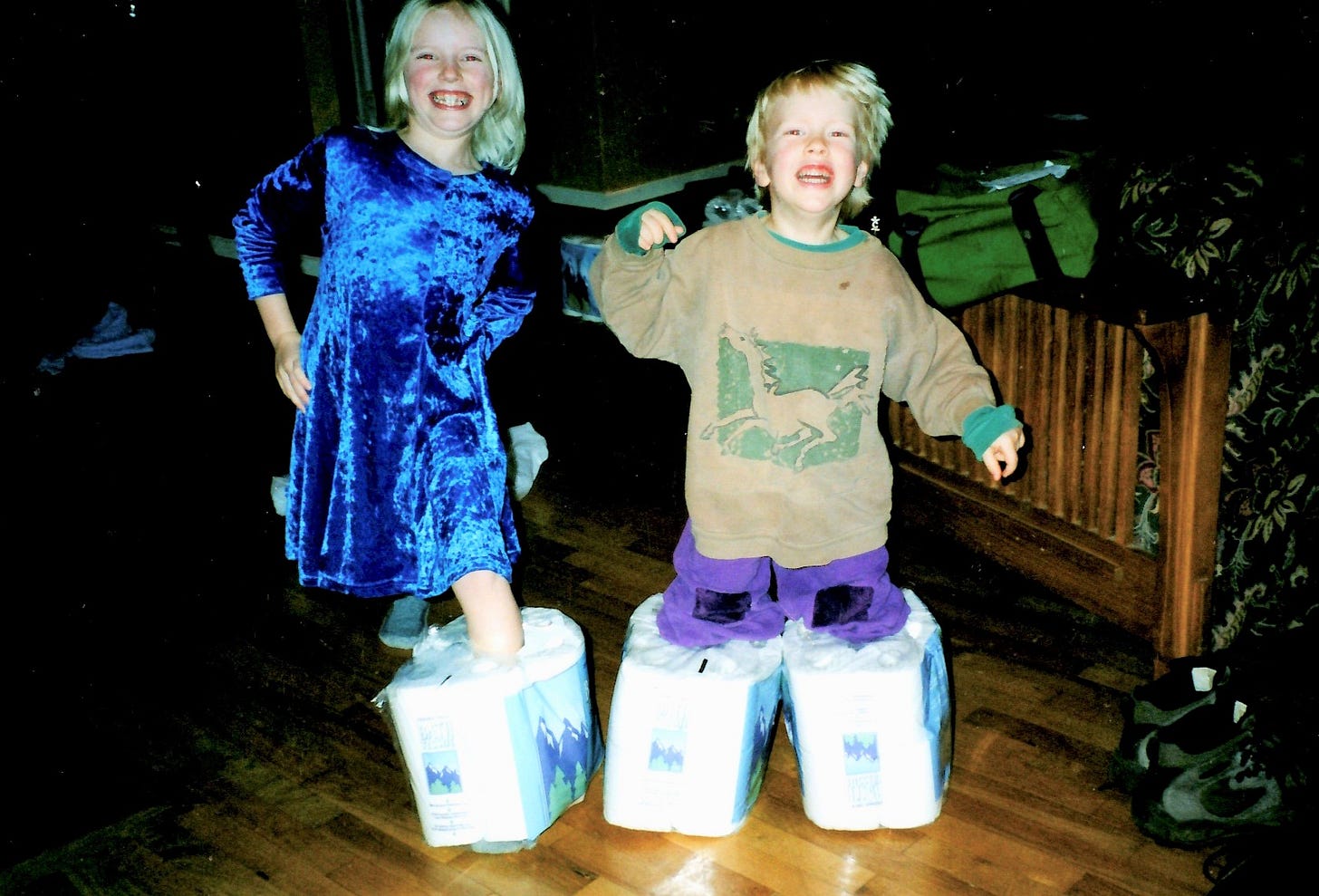
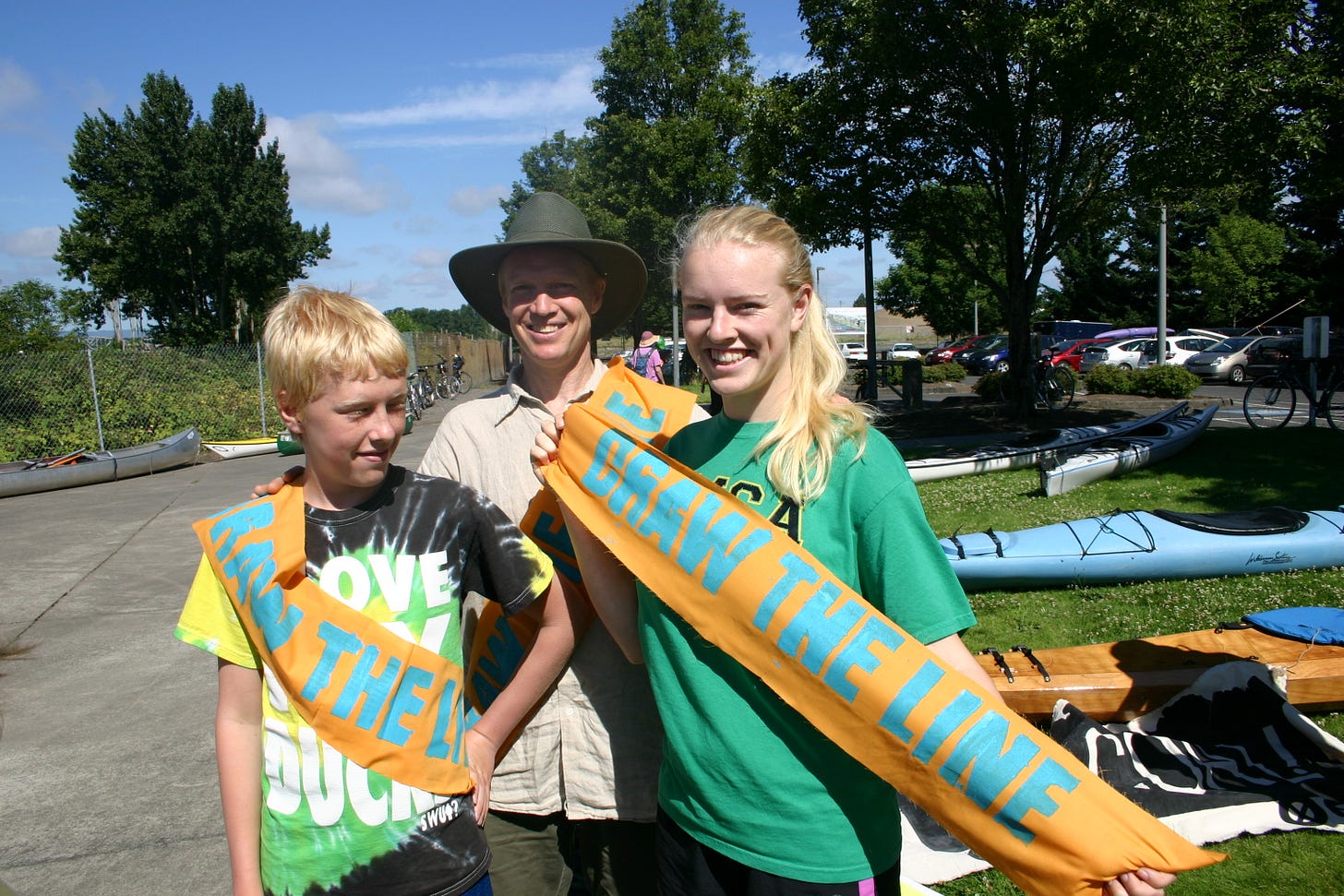
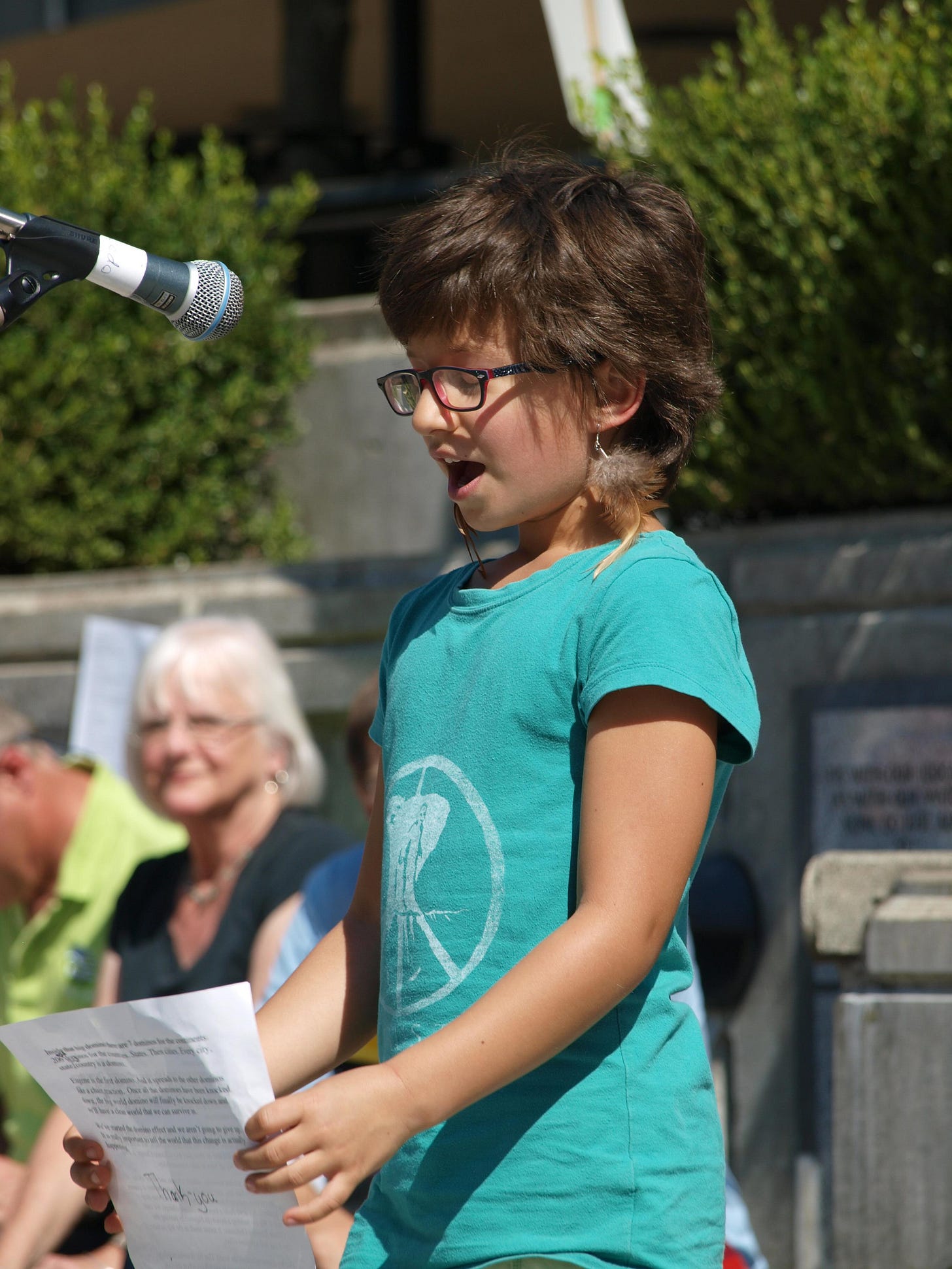
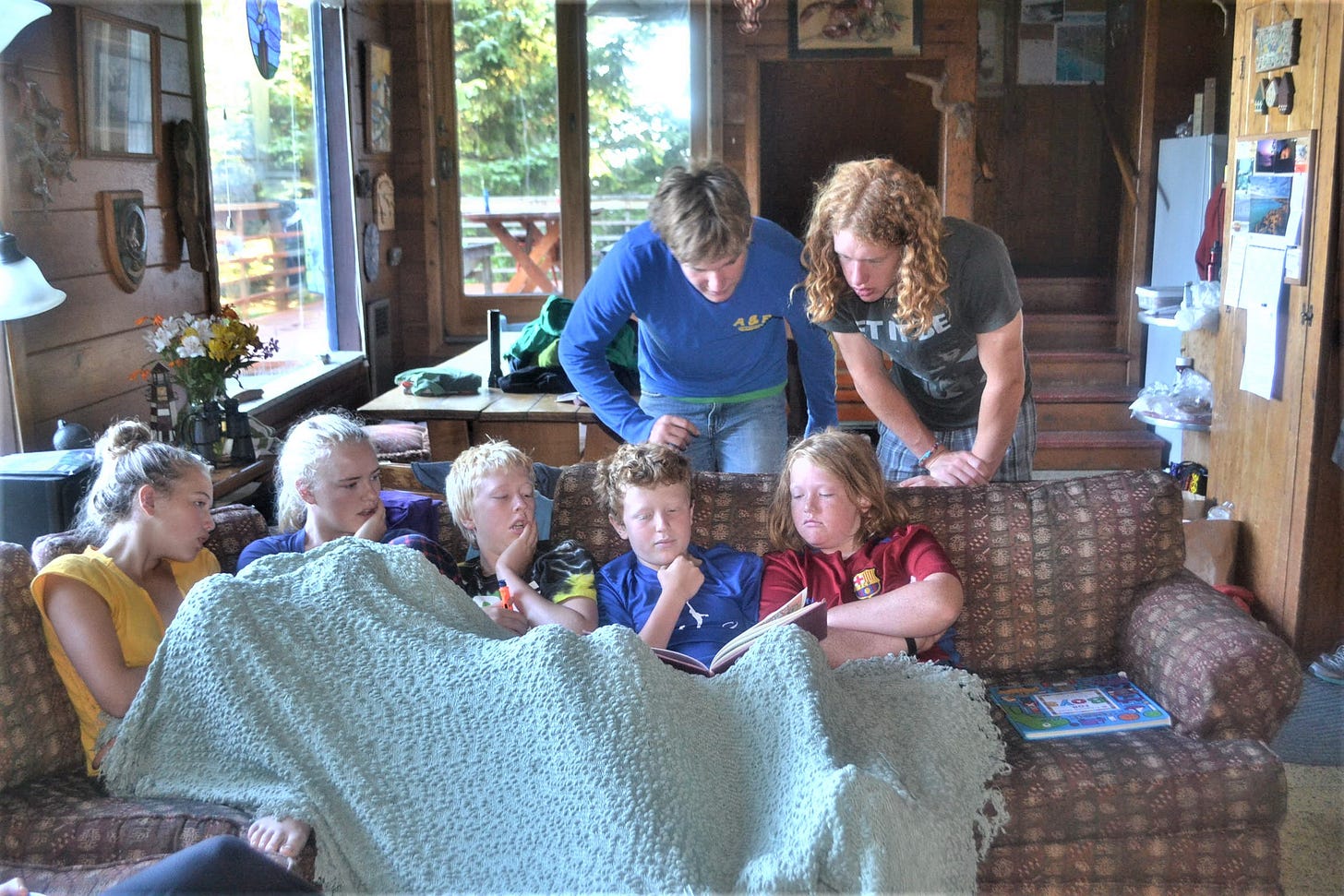
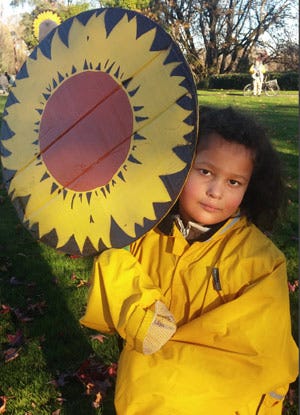
This was really wonderful and heart-breaking to read, thank you.
Good. Non-preachy. Empathetic. Shared.